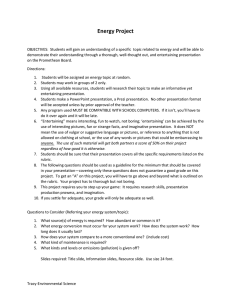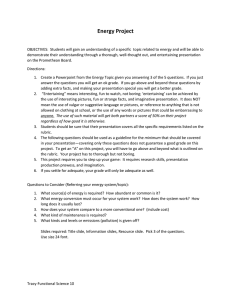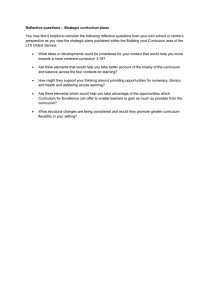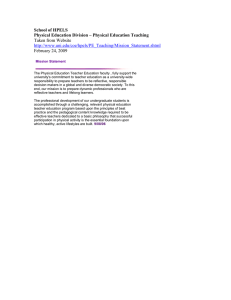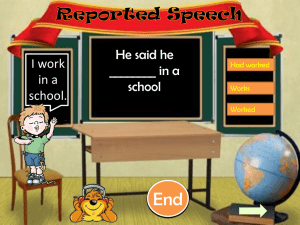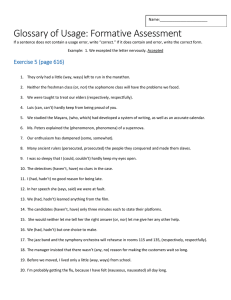Open-space Learning in Real World Contexts Writing and Performance
advertisement
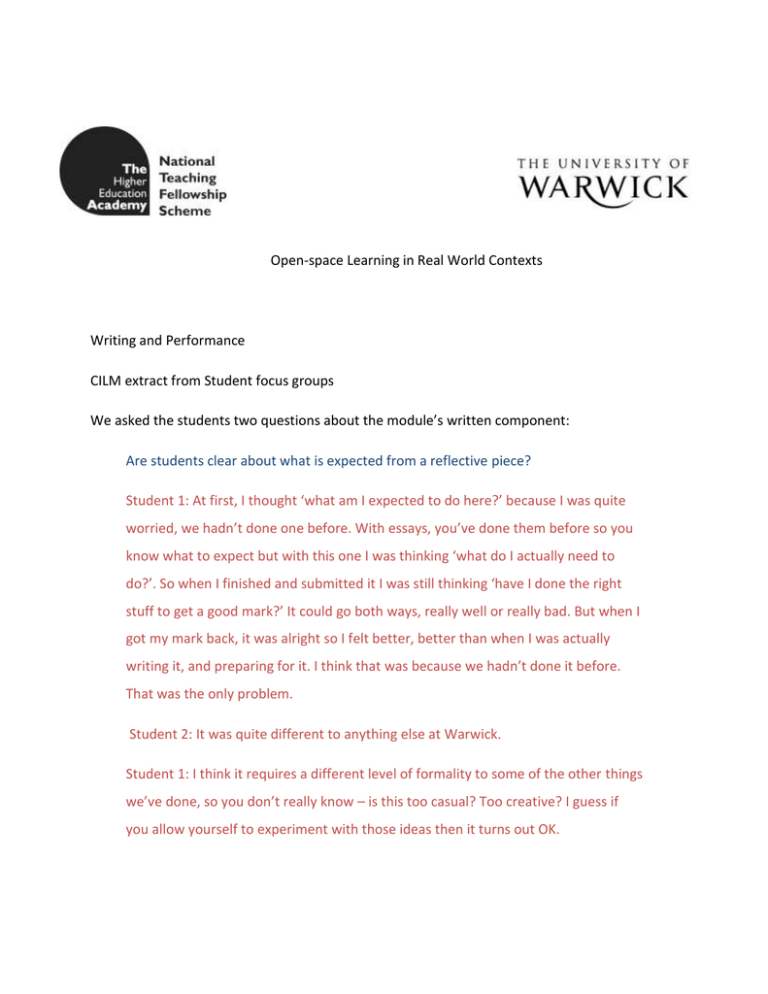
Open-space Learning in Real World Contexts Writing and Performance CILM extract from Student focus groups We asked the students two questions about the module’s written component: Are students clear about what is expected from a reflective piece? Student 1: At first, I thought ‘what am I expected to do here?’ because I was quite worried, we hadn’t done one before. With essays, you’ve done them before so you know what to expect but with this one I was thinking ‘what do I actually need to do?’. So when I finished and submitted it I was still thinking ‘have I done the right stuff to get a good mark?’ It could go both ways, really well or really bad. But when I got my mark back, it was alright so I felt better, better than when I was actually writing it, and preparing for it. I think that was because we hadn’t done it before. That was the only problem. Student 2: It was quite different to anything else at Warwick. Student 1: I think it requires a different level of formality to some of the other things we’ve done, so you don’t really know – is this too casual? Too creative? I guess if you allow yourself to experiment with those ideas then it turns out OK. Student 2: I think it brings together parts of the module really well because having to write a reflective piece it does force you to use the models that we’ve been taught in relation to what we’ve been doing throughout the weeks, that actually forces you to think about ‘actually I did learn this and this, and I can see where that fits in now’ whereas normally if you didn’t have to write a piece you probably wouldn’t think about it that much. Can you see any relationship between the performance and presentation skills of the kind you’ve been developing throughout this module, and writing skills generally? Student 1: Yes. Because even when you’re reading something, even when I’m writing something for someone else to be reading, I’ve got it more in my mind now that you want to make it entertaining. Especially when they gave us the long essay to read, we all thought ‘This is so boring, so hard to read’ – the performance, not as in how we performed but the idea that when you want to get across a message, when you want to get across what you’re saying, you should be making it entertaining, make it cleverly done, and cleverly constructed, to eventually get your message across rather than try and get your message across by repeating it in words and words and words and words.
